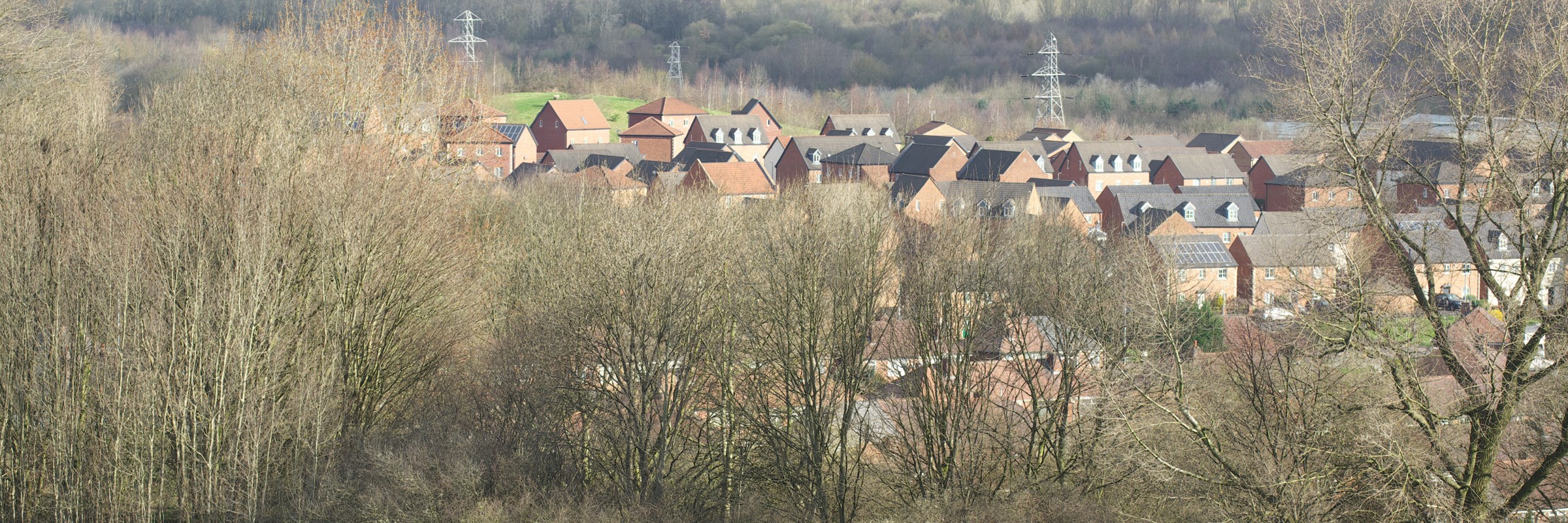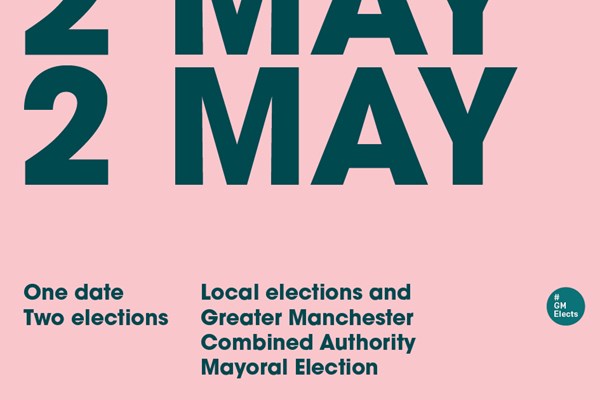
Statements from the Mayor and Deputy Mayor on the Manchester Arena Inquiry Report Volume 2
Full statement from the Mayor of Greater Manchester, Andy Burnham, on the Manchester Arena Inquiry Report Volume 2:
“I want to thank Sir John and his inquiry team for giving us the fullest picture of what happened at the Manchester Arena on the night of the 22nd May 2017 and into the early hours of the 23rd.
“To those injured, to everyone still struggling and, most importantly, to the families of those who died – particularly John’s family and Saffie’s family – I wish to say this very clearly: you were badly let down on that night; you were entitled to expect much better from our emergency services than the response provided; and, as you have heard from them today, everyone here is truly sorry that did not happen.
“Of course, there were many people who did act courageously and selflessly in the moment as Sir John said himself today. We recognise what they did. Police officers and paramedics did run into what they believed to be a dangerous situation as did Arena staff, Travel Safe officers and staff from Northern Rail at Victoria Station.
“In particular, the members of the public who helped others in a desperate situation deserve our huge thanks and more recognition for what they did.
“Many people in all emergency services did do their jobs properly. But they were let down by the lack of a properly organised response.
“As the inquiry report makes clear, the reason people were left in this unacceptable position was the result of poor advance planning, and a failure to follow established guidance for an incident of this nature. That led to a poorly co-ordinated and confused response operation on the night. There is no justification nor excuse for this.
“I can only speak for the services for which I am responsible – Greater Manchester Police and Greater Manchester Fire and Rescue Service – and in my view they failed so badly because they had poor leadership, a poor internal culture and an inability to collaborate properly and apply JESIP principles as the public should have been entitled to expect.
“Back in 2017, it was particularly the failure of the fire service to respond on the night which exposed the fact that something was seriously amiss with the overall response. That was the reason why the Deputy Mayor and I decided it would be wrong to wait for this public inquiry to conclude and, instead, we initiated our own process of inquiry and learning.
“We asked Lord Kerslake to undertake a non-statutory review so that we could begin to understand what had happened and make changes to our police service and our fire service at the earliest opportunity.
“I note today the Kerslake report has been endorsed by the Chair of the inquiry and used to inform his report.
“With regards to the fire service, the Kerslake Report in 2018 helped us get quickly to the scale of the internal problems it had, which was confirmed by visits to all fire stations in Greater Manchester which the Deputy Mayor and I personally undertook.
“I can say this with confidence to the people of Greater Manchester: your fire service of today is not the fire service of 2017.
“It has new, more effective leadership which in turn has brought about an improvement in internal culture and, as His Majesty’s Inspectorate of Constabulary and Fire & Rescue Services has confirmed, in the way the service supports its staff.
“Evidence of this can be seen in the agreement reached by the new Chief Fire Officer and the Fire Brigades Union for a new approach to dealing with a marauding terrorist attack.
“Greater Manchester Fire and Rescue Service is currently training all of its firefighters to respond in that eventuality, equipping all pumps with the capability and, alongside London, is the first fire service in the country to do so.
“With regards to Greater Manchester Police, what this inquiry reveals is very troubling.
“It is barely believable to me, given my request to them to co-operate fully with the Kerslake Report, that our police force back then provided an inaccurate account of their actions nine months after the attack, which was signed off by the former Chief Constable, something which he accepted in evidence in 2021 was a, quote, “grave error”.
“It is my view that the Force tried to stick for too long to a corporate narrative that suggested it had acted effectively.
“That wasn’t just disrespectful to the families and those injured; it had the effect of misleading myself and the Deputy Mayor, denied everyone the opportunity to learn and delayed the action needed to improve the force.
“This is sadly something we have seen in the aftermath of other disasters and a pattern that keeps on repeating.
“In late 2020 I had all the evidence I needed to change the leadership of Greater Manchester Police and that is what I did.
“Last week, His Majesty’s Chief Inspector of Constabulary confirmed that there has been a total turn-around since.
“So I can also say this with confidence to the Greater Manchester public: your police force of today is a very different entity to what it was in 2017.
“But there is no complacency at all on our part. We will face up fully to every single word and recommendation in this report to ensure that the process of improvement and learning in both services continues and the Deputy Mayor will say more about this in a moment.
“However, I see four additional substantial actions which are needed in the light of what has been revealed today.
“First, I have asked the new Chief Constable and Chief Fire Officer to consider whether we need a major overhaul of the handling of 999 calls in Greater Manchester.
“While I do not criticise individual members of staff, it is clear that North West Fire Control did not adequately support the response on the night.
“This has led me to question whether the arrangement of handling 999 fire calls in a separate service outside of Greater Manchester is the right one for us going forward, particularly when it comes to mounting the best joint response we can to major incidents.
“Therefore, I have asked for an evaluation from both Chiefs on whether we should co-locate police and fire in a joint control room in Greater Manchester.
“I expect to receive that in the New Year and will make a further statement then.
“Second, I am clear that this inquiry provides a major point of reflection and learning not just for our police force but indeed for every police force in England and Wales and public service in the country.
“Time and again, in the aftermath of major incidents, we have seen how public services have failed to tell the truth at the first time of asking. This doesn’t just deny bereaved families the answers they deserve, which is appalling in itself, it denies those organisations the opportunity to learn and change.
“A legal duty of candour on all public servants would break this pattern that keeps on repeating; it would empower police officers and public servants at every level to say what they feel needs to be said to all official inquiries and thereby resist any pressure from above not to do so. In that way, it would be a protection against the wrong behaviours that can lead to poor cultures.
“It is five years this week since Bishop James Jones recommended a statutory duty of candour in his report on the experience of the Hillsborough families.
“Given that a previous Prime Minister personally commissioned his review, I consider it disrespectful to her, to the Hillsborough families, to the Manchester Arena families and the Grenfell families, that that review has lain on a Whitehall shelf for five full years without so much as a Government response.
“This cannot continue. I have had a constructive meeting this week with the new Home Secretary and I call on her to bring forward a response as soon as possible and to accept the need for a statutory duty of candour.
“In my view, a culture of speaking candidly is what our new Chief Constable has brought to Greater Manchester Police. It is what has helped us to exit special measures and it can do the same for other police forces, as a tool for learning and improvement. But it needs to be enshrined on a permanent basis.
“To help, if the Government would like to trial its approach, I would like to offer Greater Manchester to the Home Secretary as a place where we would be willing to do that, working in partnership with the Home Office.
“Third, like Sir John, I want to point to another legislative change which is needed and, if enacted, would actually help the emergency services do their job. This is the Duty to Protect, or Martyn’s Law, which would strengthen security arrangements at public venues big and small, and create a consistency and clarity currently lacking.
“We pay tribute to Martyn’s mum, Figen Murray, for championing this change but its implementation is now overdue, as Sir John said. The Government must turn commitments to legislate, given to Figen and others, into real action and resist any calls to water down this important and much-needed law.
“Fourth, and finally, I want to ensure that the findings of this authoritative and important public inquiry will be protected in perpetuity and not be allowed to be undermined or subverted by those who wish to present false narratives and conspiracies.
“I find it utterly abhorrent that people injured in this atrocity, and families bereaved, have been harassed and trolled by those who seek to portray it as a hoax. I can barely believe that something like this is even happening in a country like ours. But I have seen also how it is becoming more common for the victims of this and other disasters to be on the receiving end of trolling using false narratives.
“I call therefore on the Government to consider making it a specific office to deny the facts about major disasters, such as the deaths that occurred, and to subvert the findings of non-contested inquiries like this, to create false narratives and conspiracies which re-traumatise victims.
“In conclusion, over the last five years, I have had the privilege of getting to know the families who lost loved-ones on that night. They are without exception wonderful people who, as I said at the start, deserved so much better.
“I have also got to know many of those injured and have seen first-hand how they have come together to help each other, through initiatives such as our incredible Survivors Choir.
“I hope they all know me well enough by now to know that I would never give them platitudes like “lessons will be learned”.
“What I can instead say to them today is that major changes have already been made on the back of what happened and more are to come.
“Thank you.”
Full statement from Greater Manchester Deputy Mayor for Policing, Crime and Fire, Bev Hughes, on the Manchester Arena Inquiry Report Volume 2:
“I know that today will be yet another traumatic day for the bereaved families, the survivors and those close to them. They have endured and continue to endure the most unimaginable pain. And hearing the detail of today’s findings, while very important to them, will rehearse yet again their anguish and loss. I am thinking especially of them today.
“I join the Mayor in recognising the individual and organisational failures in the response of our police and fire and rescue services on the night of the Arena attack, and I too am truly sorry for that.
“When the attack happened, the Mayor and I had been in post for only a couple of weeks. We did not expect that our emergency services – there to protect our communities and save lives – could fail in this catastrophic way.
“I recognise that the challenges faced by emergency responders at the scene were incredibly difficult, dealing with hundreds of casualties in a context of uncertainty and danger, not knowing whether another shooter existed or there was another attack planned.
“Those who responded immediately at the scene, professionals and members of the public alike, were heroic and selfless and I commend them.
“They did the best they could while some of their senior commanders failed them and failed the victims.
“36 hours after the attack the Mayor and I went to the City Room. We talked to the forensic experts and counter terrorism detectives who had already, even by then, made significant progress in securing evidence from what was a devastating scene. The painstaking investigation that followed was meticulous, as was the support for families and survivors. The successful extradition and prosecution of the terrorist’s brother and accomplice was a major achievement.
“However, commendable as all these actions were in the days, months and indeed years after the attack, they cannot eclipse the terrible failures of the emergency services on the night.
“I too extend my thanks to the Chair of the Inquiry, Sir John, and to his team. Today’s report has been a long time coming, it is very thorough and whilst we will need time to digest all the detail, I accept the findings in full.
“I want to repeat at the outset what the Mayor has said - that the Greater Manchester Fire and Rescue Service and Greater Manchester Police we have today are unrecognisable from the organisations the Mayor and I inherited in 2017. There have been two phases of transformation since then which have led to these significant changes.
“Firstly, immediately after the Arena attack, we knew we could not wait for years for an official inquiry before the families and the public had some answers. And that’s why, as the Mayor said, we set up the Kerslake Review, which was published in 2018.
“Under the framework of the Greater Manchester Resilience Forum, which I began to attend personally, a robust process of implementation of all the Kerslake recommendations was begun and monitored closely.
“For example, GMFRS immediately made changes to the NILO role – the National Inter-Agency Liaison Officer role – to ensure greater communication and collaboration with partners, including having the NILO permanently co-located in the GMP Force Duty Officer during working hours with communications channels in place for direct contact at all other times.
“NILOs are now automatically mobilised by North West Fire Control to Chemical, Biological, Radiological, Nuclear or Explosive (CBRNE) incidents, or Marauding Terrorist Attacks (MTAs).
“It was clear on the night of the attack there was a failure of joint working and the JESIP - Joint Emergency Service Interoperability Principles - between all three emergency services. JESIP principles stipulate that emergency services should: Co-locate at the earliest opportunity; Communicate; Coordinate; Jointly assess and understand the risk; and have Shared situational awareness.
“A dedicated radio channel for North West Fire Control, GMP, NWAS and the other partners’ control rooms was established immediately after the Arena attack. Since then, the system has evolved and the current system allows for communication between control rooms across the North West.
“A Greater Manchester radio channel for blue light commanders remains in place. Both channels are regularly tested and have been effectively used in multi-agency incidents and exercises since then.
“Many multiagency training exercises have taken place to test JESIP and joint working during major incidents at a local and city-region level, involving all the emergency services and other partners since the Arena attack.
“JESIP training has been embedded through online and face-to-face training for all operational officers and incident commanders. In GMFRS for example, 194 officers have taken part in JESIP training and 70 tri-service JESIP training sessions have taken place.
“The specific issues for GMP that arose in the Kerslake report, for example, to the Force Duty Officer, the lack of clarity about PLATO and the training of officers have been similarly addressed.
“The Force Duty Officer had too many demands on the night and since the attack the firearms role has been separated out.
“The Force Duty Officer is now based at GMP HQ and in the event of an incident, JESIP principles are implemented immediately such that the Force Duty Officer is fully supported at Headquarters and other emergency services co-locate with them.
“The second phase of organisational transformation subsequent to these immediate and specific post-attack measures, has been, for both the police and the fire service, a fundamental change in leadership, culture, organisation, accountability, governance and performance management,
“The Mayor has already referred to the fact that many firefighters contacted us with concerns about the leadership and the culture in GMFRS so we visited between us every single fire station and other premises to make sure the voices of officers and staff were being heard.
“We changed the leadership, appointed a new Interim CFO and instituted a wide-ranging programme for change in every area of organisational and operational activity.
“Following his appointment in 2020, under Chief Fire Officer Dave Russel’s leadership, there has been a sea change in the culture of the organisation, recognised by the Chief Inspector, who now recognises the Service to be “Good” in this area.
“With the Chief Fire Officer, the Mayor and I have also set new priorities for the fire service, as outlined in the Fire Plan. The Service continues to make the improvements it needs.
“The Mayor has already spoken about improvements to our MTA capabilities.
“Every one of our firefighters is receiving enhanced training, and specialist equipment will be available on every fire engine so they can respond quickly and effectively to a terrorist attack or mass casualty incident.
“The training includes a practical multi-agency training day with the blue light partners and North West Fire Control and is aligned with the police and ambulance services, including joint-JESIP training exercises to test our integrated response.
“And in September 2022, the Chief Inspector removed the Cause of Concern for MTA, and was satisfied that that the new capability would provide a robust response to any future terrorist incident.
“In relation to GMP, the substantive failure of leadership by senior commanders identified by the Inquiry report today is an indictment. But it is one that has already been identified by His Majesty’s Chief Inspector and we have acted to change fundamentally the leadership, culture and performance across the board.
“Two years ago, the then-Chief Constable was asked to leave and Stephen Watson was appointed last year. He began immediately defining the new strategic direction to secure the necessary improvements, and building a new senior officer team.
“The Chief Inspector last week, as you’ve heard, released GMP from special measures in light of the very significant improvements so far, and that process of change continues
“I am confident that both GMP and the fire service are fundamentally different organisations than they were in 2017: focused now on serving the public effectively, on continuously improving their performance, accountable and transparent, and with outstanding leaders.
“But there is no complacency here. We must now assess systematically the recommendations of the Inquiry report against the measures we have already taken, and ensure that all outstanding recommendations are implemented in full as soon as possible.
“When we saw how the people of Greater Manchester came together during our most difficult time, demonstrated that exemplary civic and public response, stood together to show we were not going to let the terrorists win, then it is very clear to us they deserve nothing but the best, and that is what we’ll strive for.
“Thank you.”
Article Published: 03/11/2022 17:55 PM



